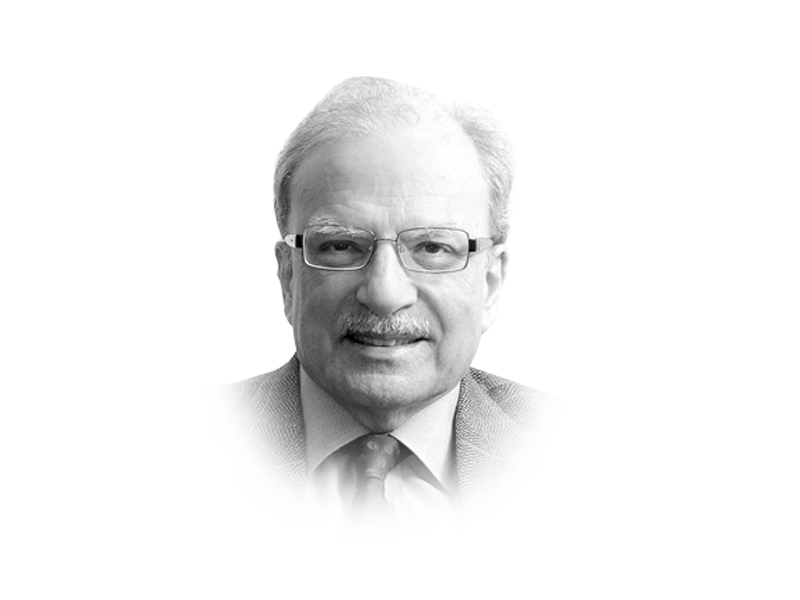
The place in the emerging world that comes closest to the Silicon Valley is Bangalore in south India. But the Indian city has gained prominence not because of a close association with academia, the finance sector, or established industries. It owes its existence and reputation to the clustering together of a number of large IT companies in the area. Most of these firms built lucrative businesses based on outsourcing. India has many world class institutes of technology, but most of the better known ones are in places some distance from Bangalore. Hyderabad, again in a southern Indian state, has turned the Bangalore model upside down. It now houses a world class institute of management, whose funding and development was largely financed by the rich Indian diaspora in the United States. The institute has begun to attract private enterprise to the city as was done by towns such as San Jose in Silicon Valley.
Could the Hyderabad model be replicated in Pakistan? The answer is most certainly ‘yes’. There are three cities in the country that have the makings of vibrant centres of technology. Lahore and Islamabad have several universities and learning centres, many of which specialise in science and technology. Two of these are in the private sector — Lahore University of Management Sciences — known by its acronym, LUMS. The second, Lahore School of Economics while still focused on social sciences, has the capacity and business model to develop beyond that and move into science and engineering. Lahore already has a cluster of privately-owned and managed IT businesses. The landscape has been dominated by one large company, Netsol. It is located prominently on the Lahore Ring Road and employs more than 1,000 engineers, many of them women. Islamabad also has a cluster of universities that are already feeding the city’s fledgling IT industry. Most of the Islamabad-based enterprises are small with less than 100 employees. The National University of Science and Technology, NUST, was founded by the military when it decided to bunch into one entity its many science and technology institutions. The Ghulam Ishaq Khan Institute on the banks of Tarbela Lake has a strong faculty and a fairly large student body. Islamabad has one advantage over Lahore; it is only a stone’s throw away from the three military headquarters, two of which are in the capital city while the third is in Rawalpindi. At some stage, the military is likely to increase its use of technology for its command and control operations. Karachi, a city much larger than either Lahore or Islamabad, could also develop into a centre of technology. It is already the centre of the country’s finance and commerce operations and has the headquarters of several large private firms. It is lack of security that is holding back the city.
It is worth noting that no one from amongst Pakistan’s senior leaders has visited Silicon Valley in California, which has risen into a centre, not only of American but also of global economic power and is a well-recognised hotbed of technology. That world leaders realise its importance is one reason why a wave of foreign dignitaries have added the Valley to their traditional tours of the United States. Heads of state from Japan and Brazil visited in early 2015 following earlier trips by the leaders of Ireland, Russia and Malaysia. A report in The New York Times focused on the visit by the Indian Prime Minister Narendra Modi in mid-October and dwelt on prominence of the Indian diaspora in several types of IT operations. It quoted Venky Ganisan, the head of a venture capital firm as follows: “Silicon Valley is, in some ways, more important than New York and the financial sector, or Washington D.C’s political world. World leaders see clearly that when it comes to just about any sector, Silicon Valley is eating them up.” It’s not just world leaders who are interested in the Valley. In March 2015, ambassadors from 35 countries — including Kazakhstan, Gabon and Paraguay “toured the region to soak up lessons on how technology might contribute to their economies.” Why has the Pakistani leadership stayed away?
It could be for one of two reasons. The leaders have yet to realise the significance of technology for the rapid economic development and social improvement of their country. Or, they believe that this task is better left to private enterprise. They are wrong on both scores. They must recognise that technological development requires the active involvement of the state.
Published in The Express Tribune, October 5th, 2015.
Like Opinion & Editorial on Facebook, follow @ETOpEd on Twitter to receive all updates on all our daily pieces.
1734945455-0/Untitled-(88)1734945455-0-405x300.webp)
1734944224-0/Untitled-(87)1734944224-0-165x106.webp)

1734942436-0/Untitled-(86)1734942436-0-165x106.webp)












1734778885-0/Untitled-(10)1734778885-0-270x192.webp)

COMMENTS (27)
Comments are moderated and generally will be posted if they are on-topic and not abusive.
For more information, please see our Comments FAQ